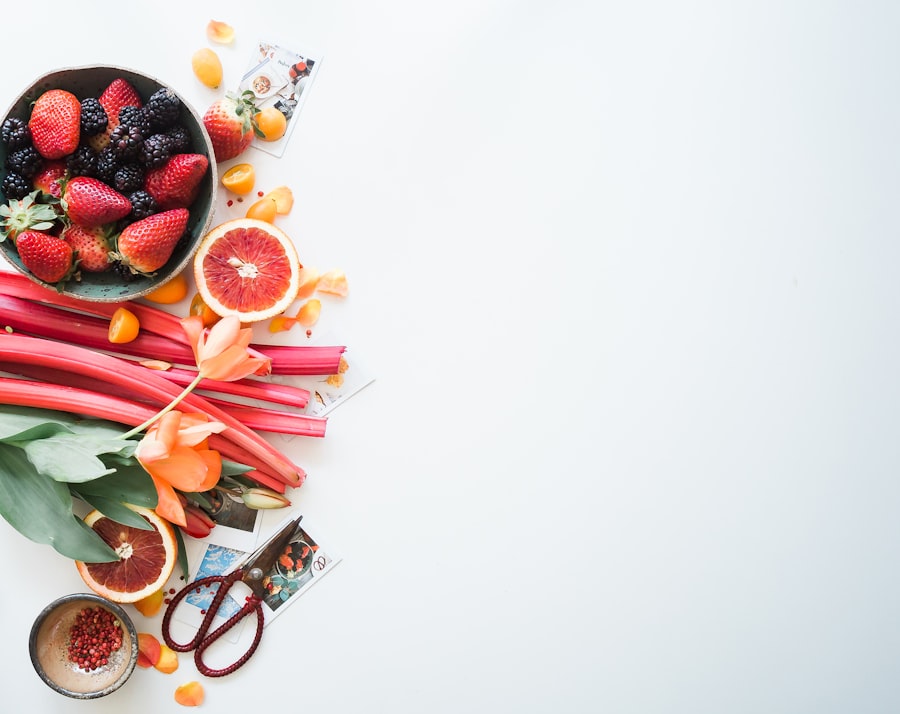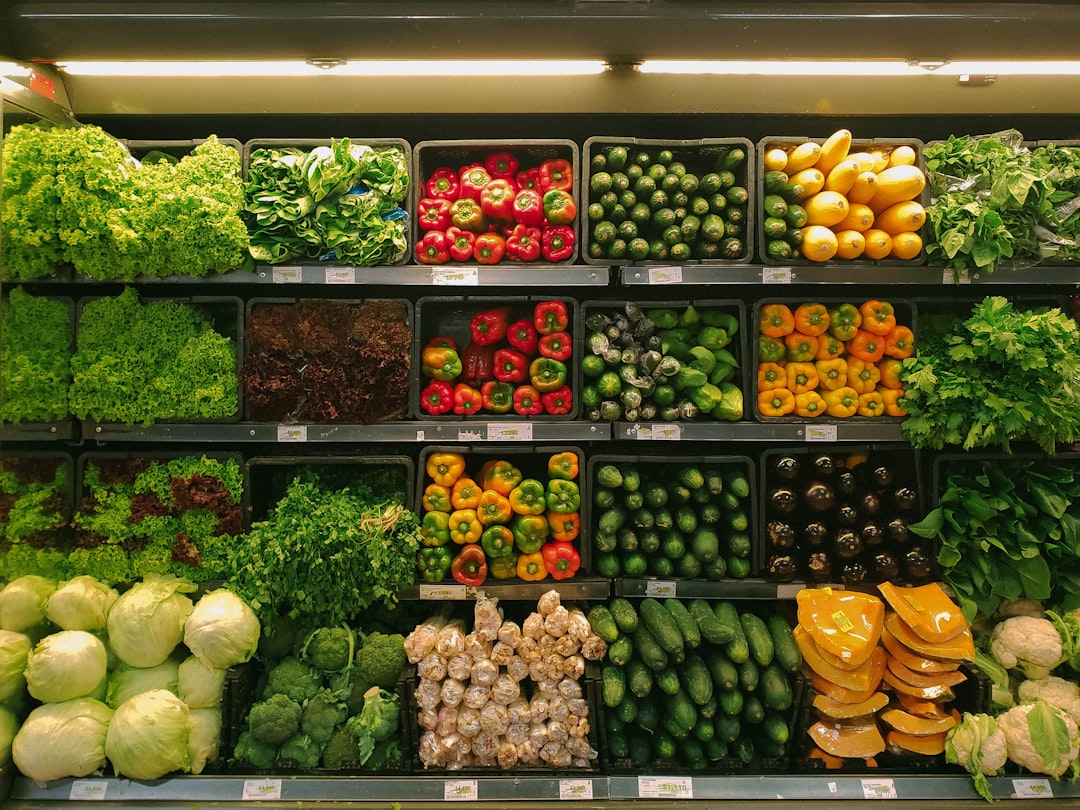Nutrition plays a pivotal role in sexual health, influencing everything from hormone production to energy levels and overall well-being. A well-balanced diet can enhance libido, improve sexual function, and contribute to a more satisfying sexual experience. The body requires a variety of nutrients to maintain optimal health, and deficiencies in certain vitamins and minerals can lead to diminished sexual desire and performance.
For instance, zinc is crucial for testosterone production, while antioxidants help combat oxidative stress that can impair blood flow and nerve function. Moreover, the relationship between nutrition and sexual health extends beyond mere physical attributes. Psychological factors, such as mood and self-esteem, are also influenced by what we eat.
Foods rich in omega-3 fatty acids, for example, can improve mood and reduce anxiety, which are essential for a healthy sex life. Additionally, certain foods can enhance blood circulation, which is vital for arousal and sexual performance. Thus, understanding the intricate connection between diet and sexual health is essential for anyone looking to enhance their intimate relationships.
Key Takeaways
- Nutrition plays a crucial role in sexual health, affecting libido, sexual function, and overall performance.
- Foods such as oysters, dark chocolate, and watermelon can enhance libido and improve sexual desire.
- Nutrients like zinc, vitamin D, and omega-3 fatty acids can improve sexual function and performance.
- A diet high in processed foods, sugar, and alcohol can negatively impact sexual health and performance.
- Creating a sex-boosting diet plan involves incorporating a variety of nutrient-rich foods and staying hydrated.
Foods that Enhance Libido
Zinc-Rich Foods for Testosterone Boost
Oysters are perhaps the most famous aphrodisiac, rich in zinc, which is essential for testosterone production. This mineral not only boosts libido but also plays a role in sperm production and overall reproductive health.
Fatty Acids for Improved Blood Circulation
Other seafood, such as salmon and mackerel, are high in omega-3 fatty acids, which improve blood circulation and may enhance sexual arousal. Fruits like bananas and avocados also contribute positively to sexual health.
Enzymes and Vitamins for Hormone Production
Bananas contain bromelain, an enzyme that may increase libido and energy levels. Avocados are rich in healthy fats and vitamin E, both of which are important for hormone production. Additionally, dark chocolate is often touted for its aphrodisiac properties due to its ability to release endorphins and improve mood. Incorporating these foods into one’s diet can create a more conducive environment for sexual desire and performance.
Nutrients that Improve Sexual Function

Several key nutrients have been identified as critical for improving sexual function. Vitamin D is one such nutrient; studies have shown that adequate levels of vitamin D are linked to higher testosterone levels in men. This vitamin can be obtained through sunlight exposure as well as dietary sources like fatty fish, egg yolks, and fortified foods.
A deficiency in vitamin D may lead to reduced libido and erectile dysfunction. Another important nutrient is L-arginine, an amino acid that helps produce nitric oxide in the body. Nitric oxide is essential for achieving and maintaining an erection as it relaxes blood vessels and improves blood flow to the genital area.
Foods rich in L-arginine include nuts, seeds, and legumes. Additionally, B vitamins, particularly B6 and B12, play a role in hormone regulation and energy production, both of which are vital for sexual health. Ensuring an adequate intake of these nutrients can significantly enhance sexual function.
The Link Between Diet and Sexual Performance
| Diets | Impact on Sexual Performance |
|---|---|
| Mediterranean Diet | Linked to improved erectile function and overall sexual health |
| High-Fat Diet | May lead to decreased libido and erectile dysfunction |
| Vegetarian/Vegan Diet | Associated with better sexual function and higher sperm count |
| Processed Foods Diet | Linked to lower sexual desire and performance issues |
The link between diet and sexual performance is multifaceted, involving physiological, psychological, and hormonal factors. A diet high in processed foods and sugars can lead to weight gain, cardiovascular issues, and hormonal imbalances that negatively impact sexual performance. Conversely, a diet rich in whole foods—fruits, vegetables, lean proteins, and healthy fats—can promote better blood circulation, hormone balance, and overall vitality.
Research has shown that men who adhere to a Mediterranean diet—which emphasizes fruits, vegetables, whole grains, fish, and healthy fats—tend to have better erectile function compared to those who consume a Western diet high in red meat and processed foods. This correlation highlights the importance of dietary choices in maintaining not only physical health but also sexual performance. Furthermore, the psychological aspect cannot be overlooked; a nutritious diet can improve self-image and confidence, which are crucial components of a satisfying sexual experience.
Foods to Avoid for Better Sexual Health
While certain foods can enhance sexual health, others can have detrimental effects on libido and performance. Processed foods high in trans fats and sugars can lead to weight gain and insulin resistance, both of which are linked to decreased testosterone levels. Additionally, excessive alcohol consumption can impair sexual function by affecting hormone levels and reducing arousal.
Caffeine is another substance that should be consumed in moderation; while it may provide a temporary energy boost, excessive intake can lead to anxiety and restlessness—two factors that are counterproductive to a healthy sex life. Furthermore, high-sodium foods can contribute to hypertension, which negatively impacts blood flow and erectile function. Being mindful of these dietary pitfalls is essential for anyone looking to improve their sexual health.
Tips for Creating a Sex-Boosting Diet Plan
Creating a sex-boosting diet plan involves incorporating a variety of nutrient-dense foods while avoiding those that may hinder sexual health. Start by including plenty of fruits and vegetables in your meals; these foods are rich in vitamins, minerals, and antioxidants that support overall health. Aim for a colorful plate—different colors often indicate different nutrients that can benefit your body.
Incorporating healthy fats is also crucial; sources like avocados, nuts, seeds, and olive oil can help regulate hormone levels. Lean proteins such as chicken, turkey, fish, and legumes provide the necessary building blocks for muscle repair and energy production. Additionally, consider adding spices like ginger or chili peppers to your meals; these can stimulate circulation and enhance arousal.
Planning meals ahead of time can help ensure you stick to your sex-boosting diet plan. Preparing healthy snacks like mixed nuts or fruit can prevent you from reaching for unhealthy options when hunger strikes. Lastly, consider consulting with a nutritionist or dietitian who specializes in sexual health; they can provide personalized guidance tailored to your specific needs.
How Hydration Affects Sexual Desire
Hydration plays an often-overlooked role in sexual desire and performance. The human body is composed of approximately 60% water, making hydration essential for nearly every bodily function. Dehydration can lead to fatigue, reduced energy levels, and even mood swings—all of which can negatively impact libido.
When the body is well-hydrated, blood circulation improves, which is crucial for arousal and sexual function. Moreover, adequate hydration supports the production of bodily fluids necessary for sexual activity. For women, proper hydration helps maintain vaginal lubrication; insufficient moisture can lead to discomfort during intercourse.
For men, hydration is equally important as it affects blood volume and circulation necessary for achieving an erection. Therefore, drinking enough water throughout the day is vital for maintaining optimal sexual health.
The Importance of a Balanced Diet for Overall Sexual Wellness
A balanced diet is fundamental not only for physical health but also for overall sexual wellness. Consuming a variety of foods ensures that the body receives all the essential nutrients required for optimal functioning. A well-rounded diet supports hormonal balance, enhances mood stability, boosts energy levels, and improves circulation—all critical components of a healthy sex life.
Furthermore, the psychological benefits of a balanced diet cannot be understated. Eating nutritious foods can lead to improved self-esteem and body image—factors that significantly influence one’s sexual confidence. Engaging in mindful eating practices can also foster a deeper connection with one’s body and its needs.
By prioritizing nutrition as part of a holistic approach to sexual wellness, individuals can cultivate healthier relationships with themselves and their partners. In conclusion, understanding the intricate relationship between nutrition and sexual health is essential for enhancing libido and improving overall sexual function. By making informed dietary choices—incorporating libido-enhancing foods while avoiding those detrimental to sexual health—individuals can create an environment conducive to fulfilling intimate experiences.



